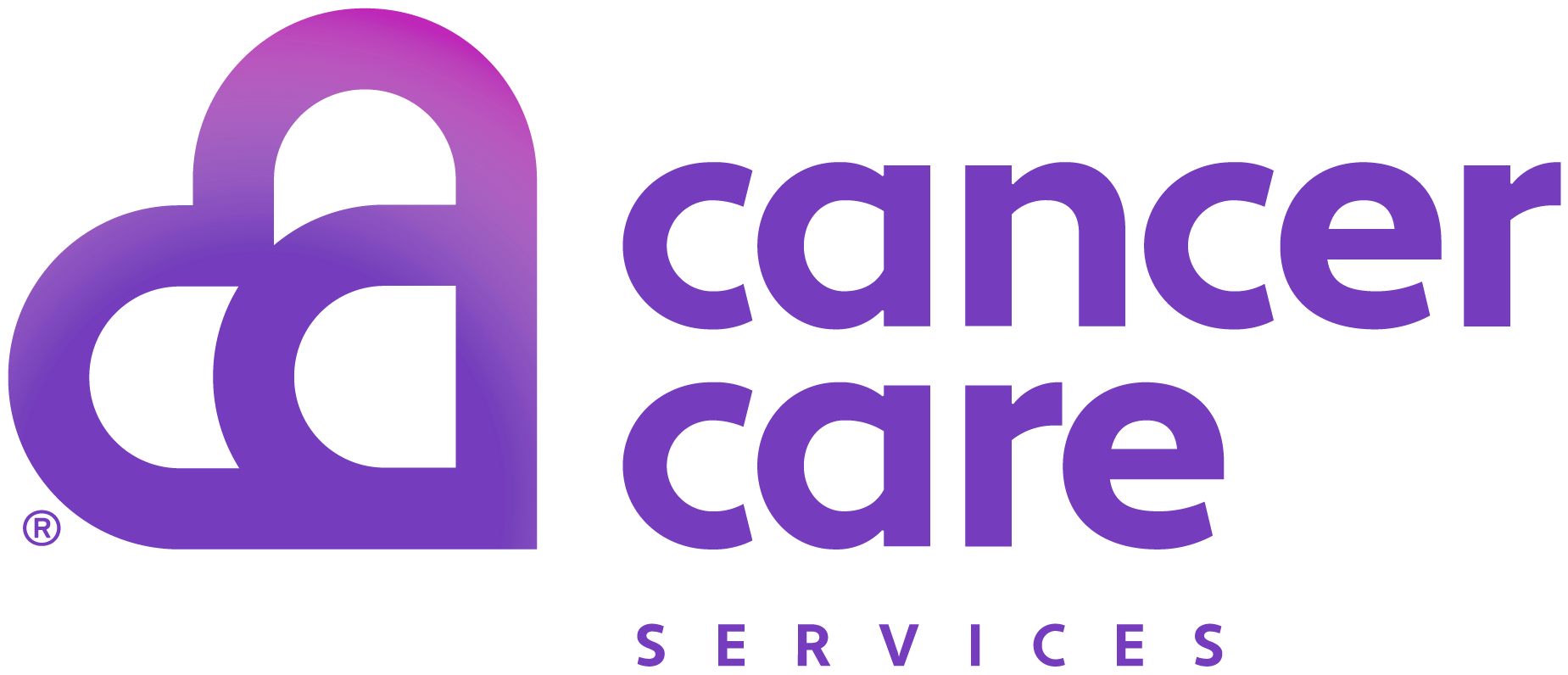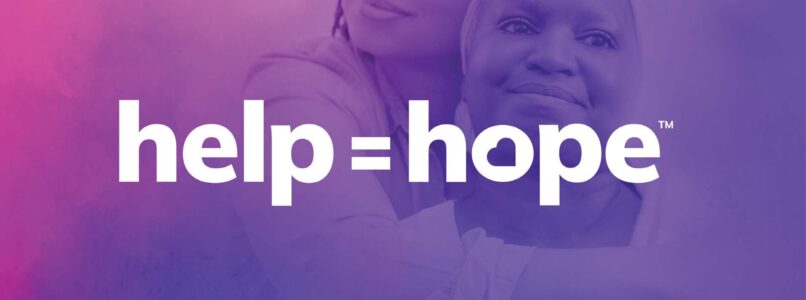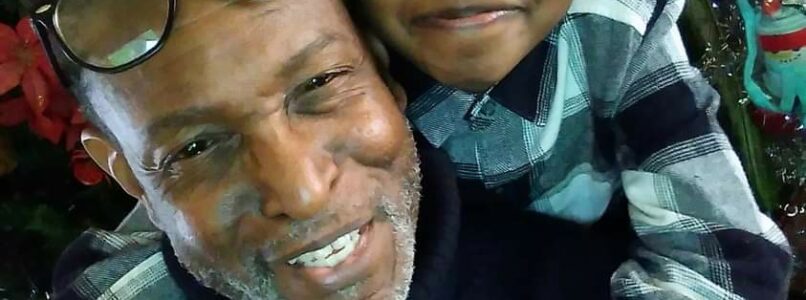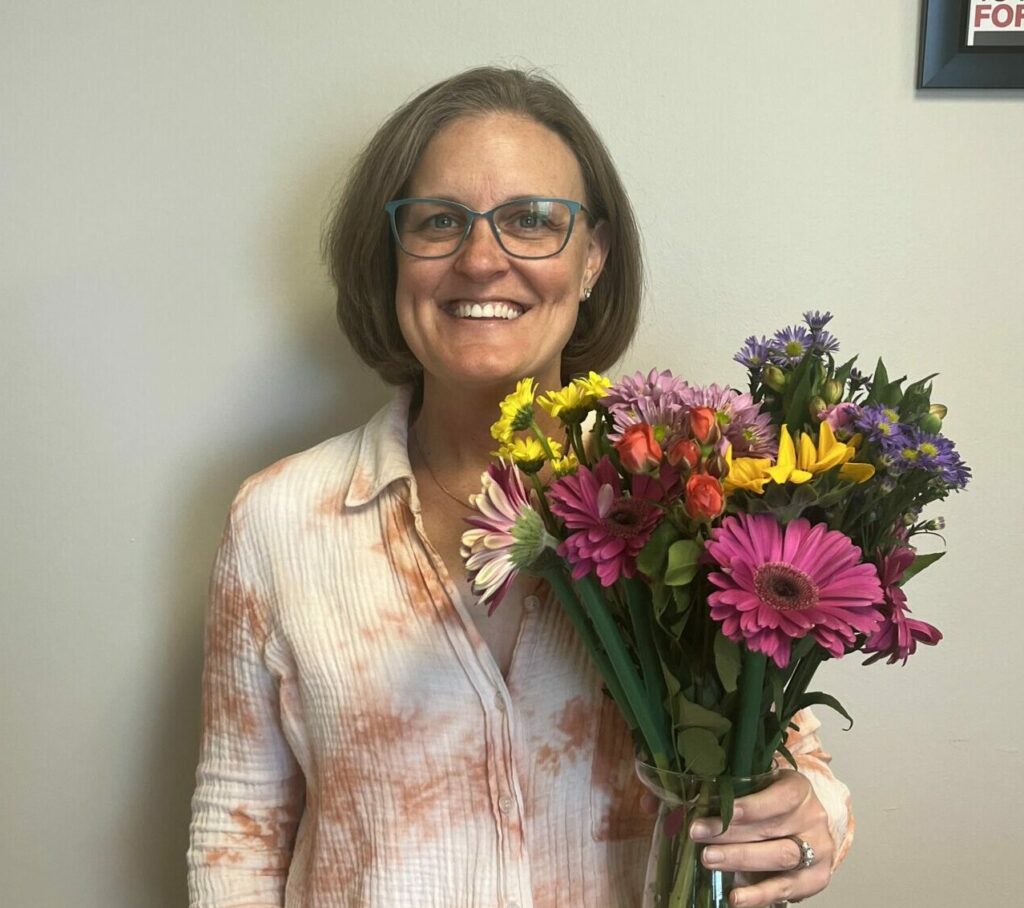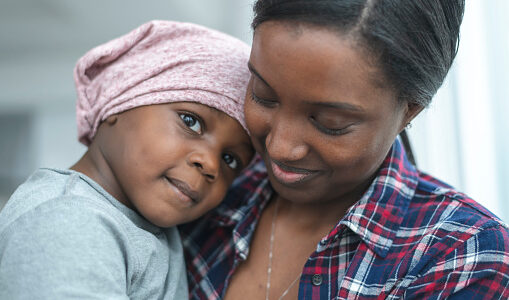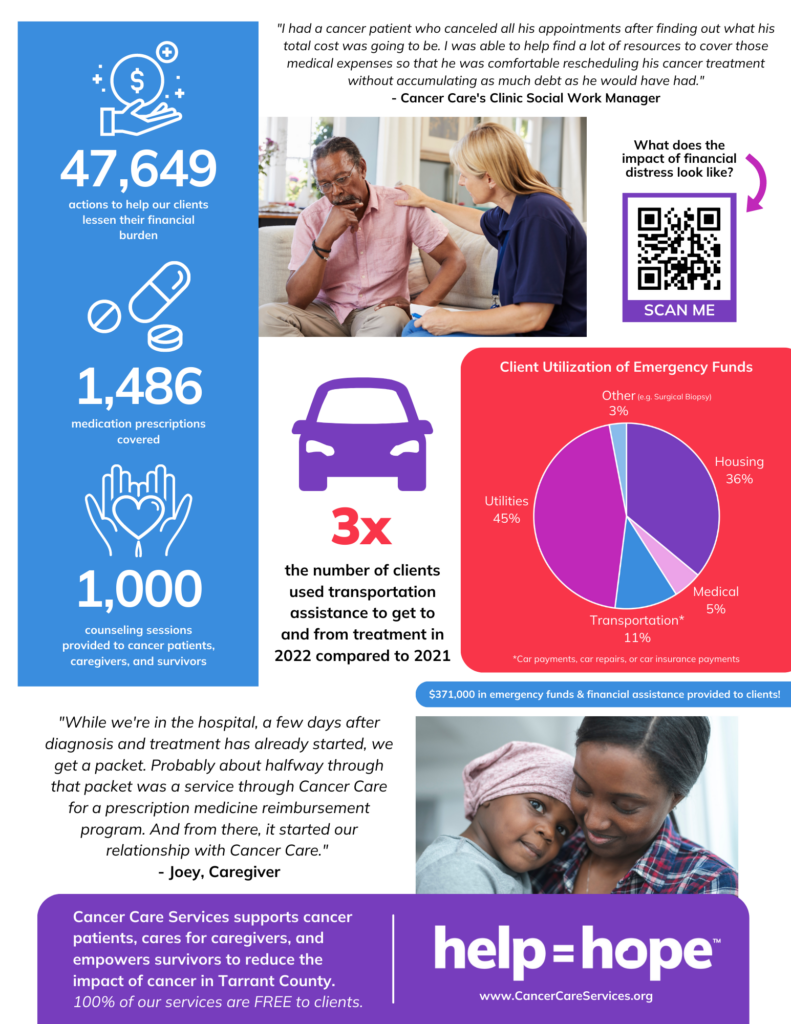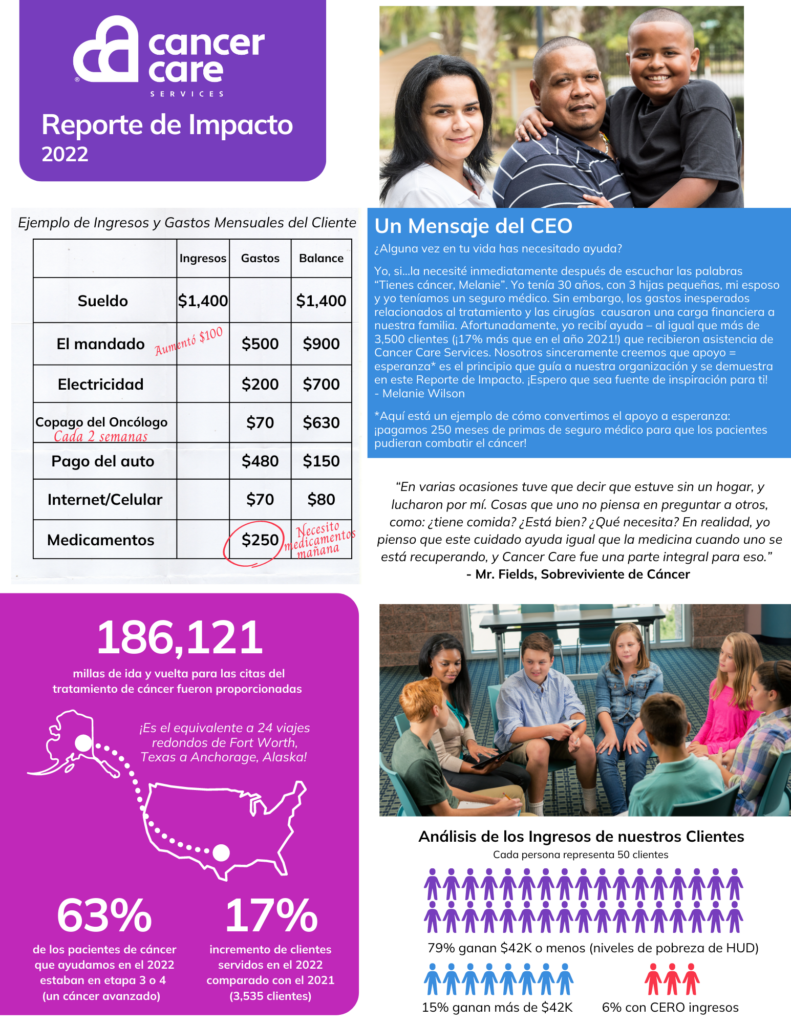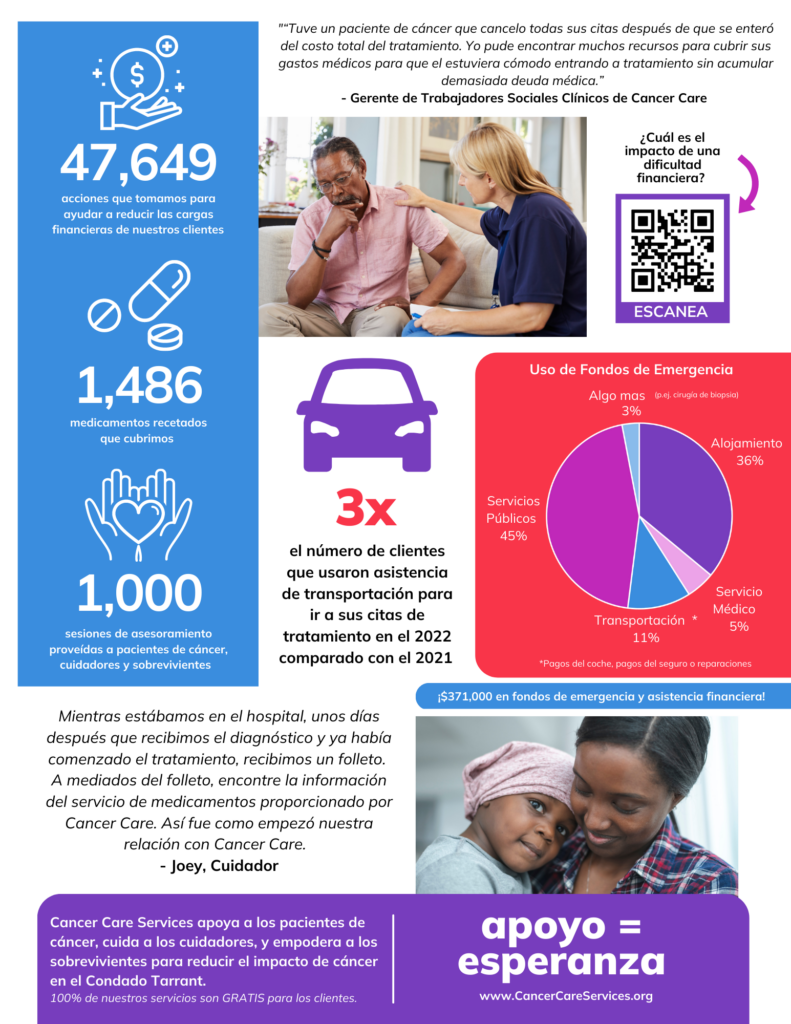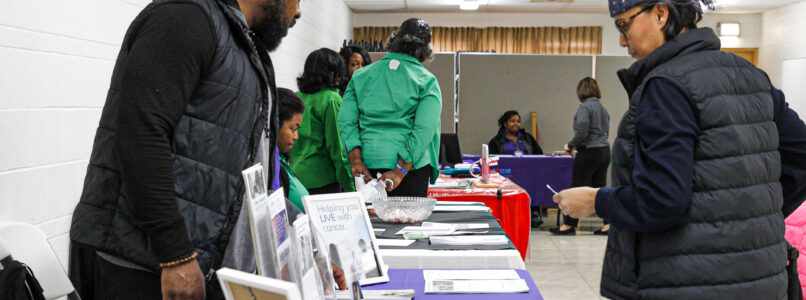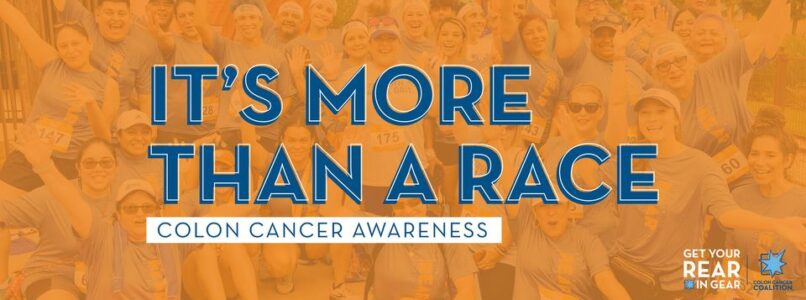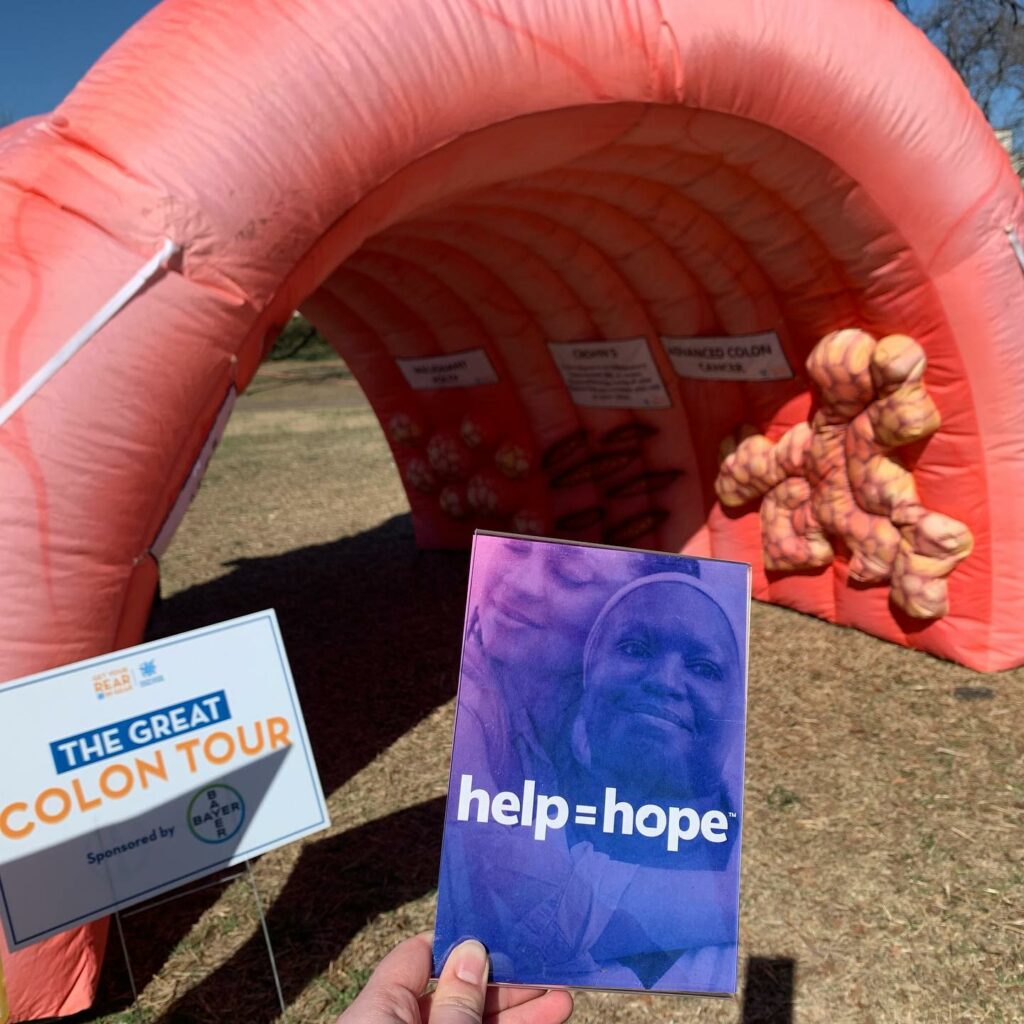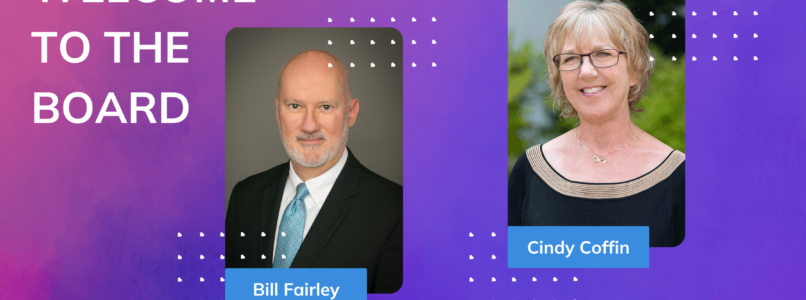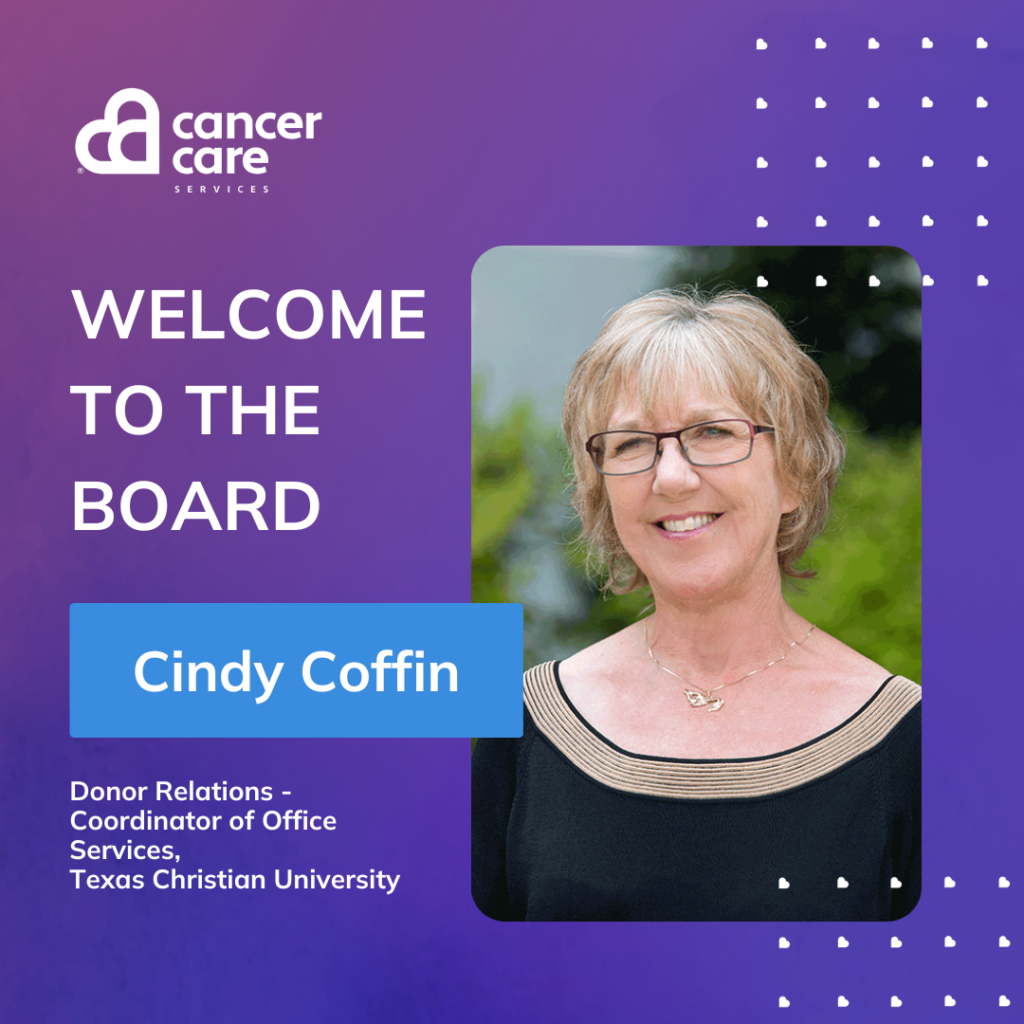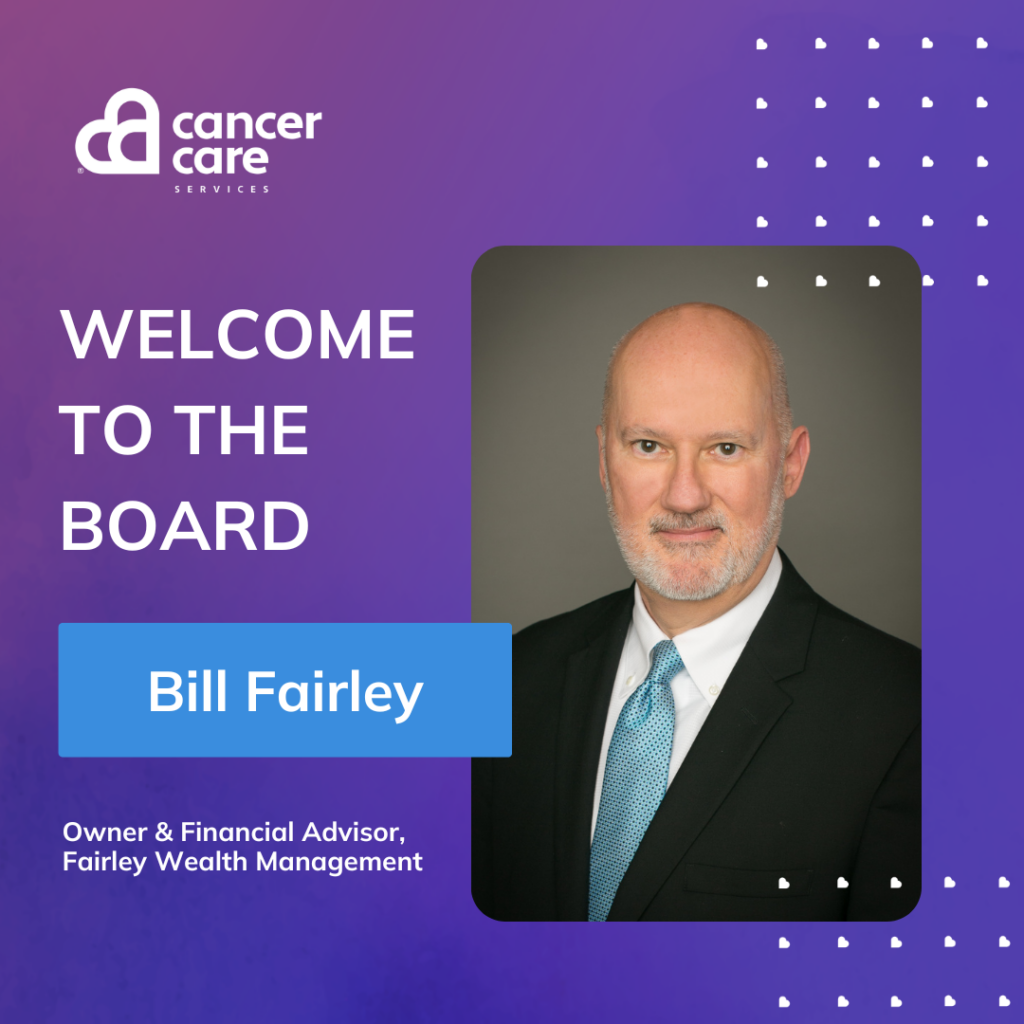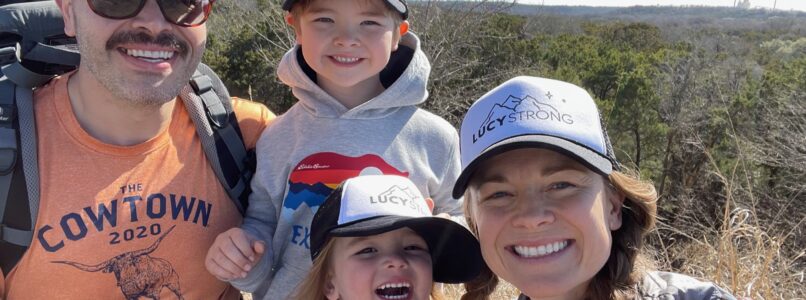Cancer can cause financial distress for many already struggling to afford their basic needs. In 2022, 79% of our clients who reported their annual income made $42,000 or less, and 6% reported having ZERO income. Cancer Care Services exists, so no one has to choose between paying for their basic needs and cancer-related bills.
What does the financial impact of cancer look like?
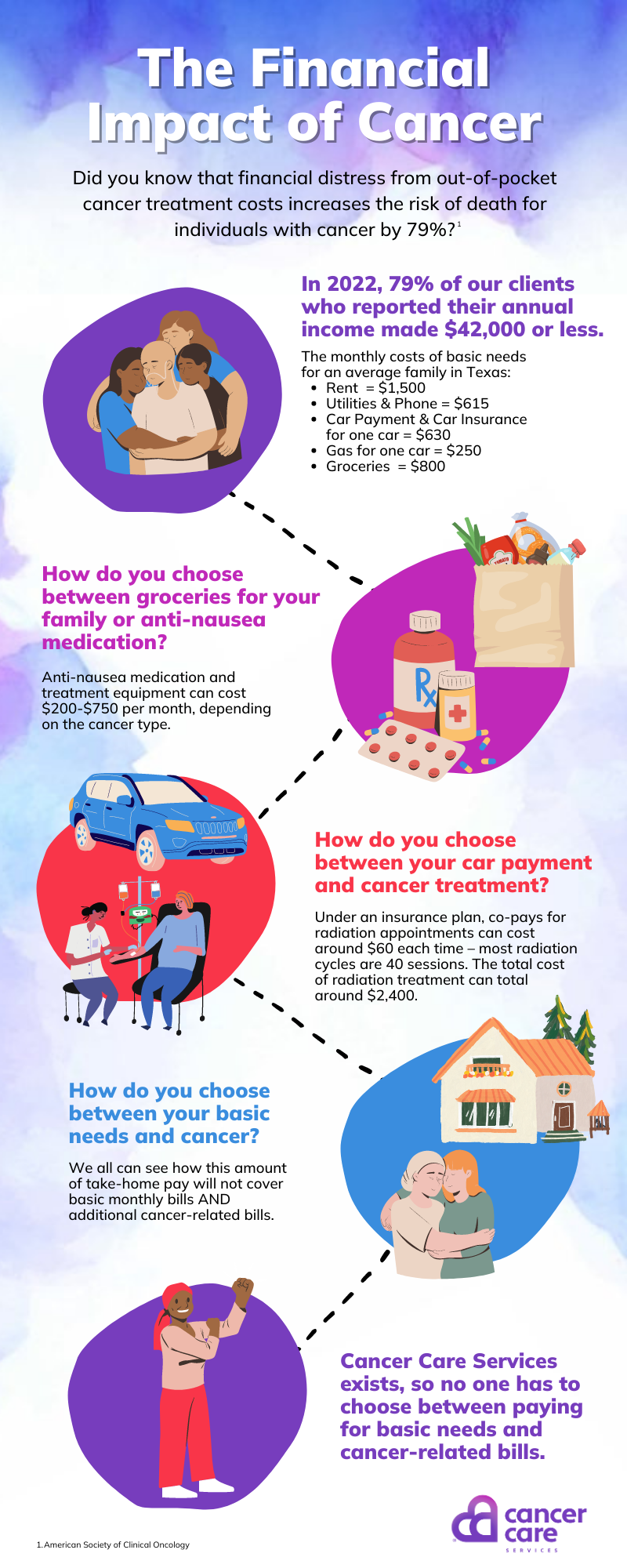
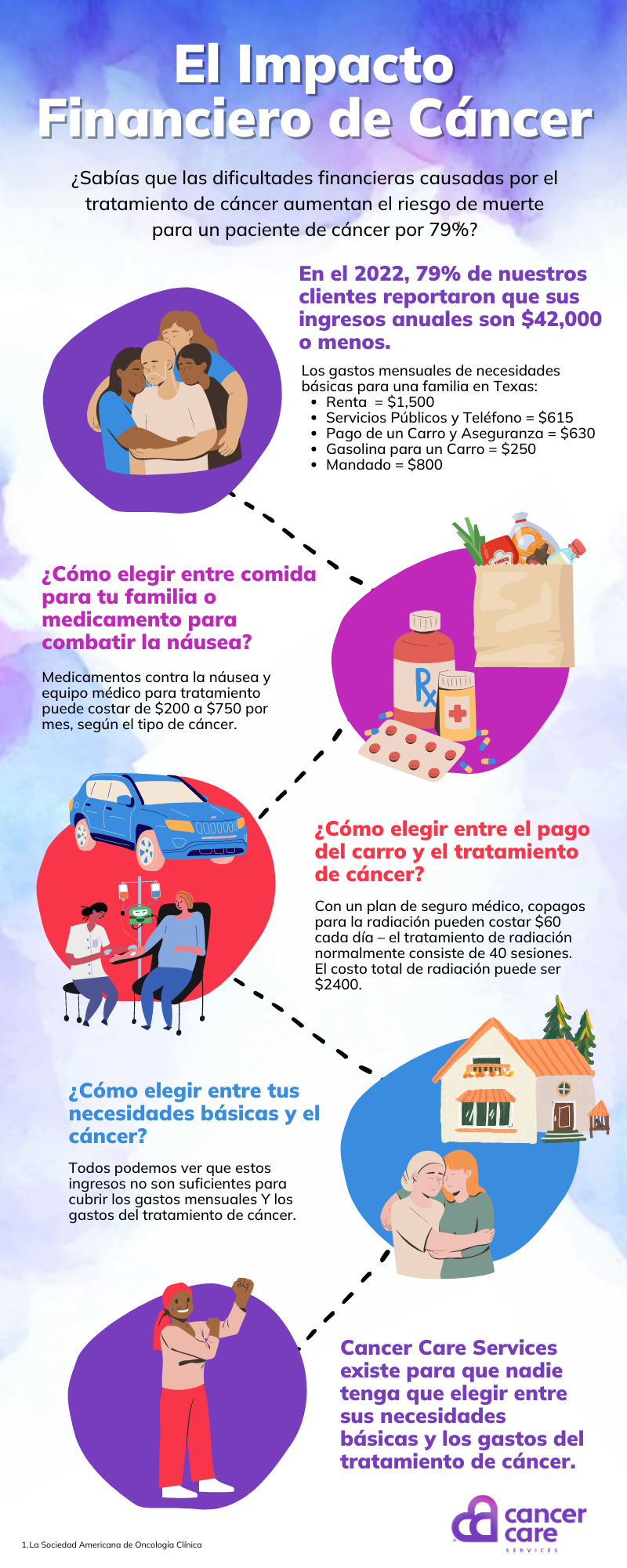
Where can I find resources to reduce financial distress?
Cancer Care Services offers financial assistance for transportation, emergency needs, medication co-pays, and more for those who qualify. We also have a financial navigator who can look over medical bills, insurance, and budgets to reduce financial toxicity and distress for those impacted by cancer. Our online resources page contains many organizations and programs that provide financial assistance to cancer patients and their families
How can I support those impacted by cancer?
There are three things you can do to support cancer patients, caregivers, and survivors.
- Volunteer your time! Cancer Care needs volunteers for Connect and supporting events, general office duties, and the infusion rooms at Texas Oncology. Start by filling out our online volunteer application.
- Spread awareness! Attend a community #CancerCareAWARE Tour or host your own (we will help you every step of the way) to learn more about our services and how you can help with our greatest needs. This is one of the best ways to spread the word about our free, wrap-around services for individuals and families impacted by cancer. Sign up for a #CancerCareAWARE Tour.
- Give a gift! Your donation ensures financial, emotional, and practical services to those impacted by cancer in our community. Your donation brings help and hope.
